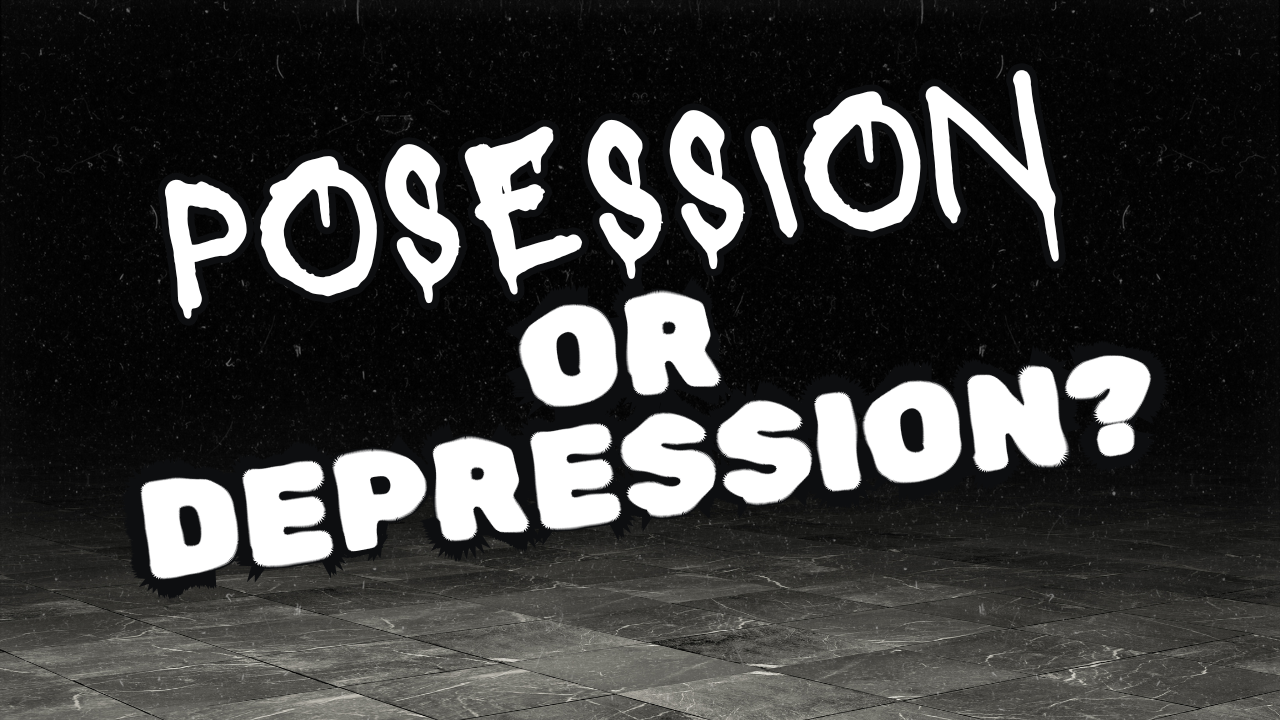Possession or Depression? How to Know What You’re Really Fighting

Introduction: When the Mind Becomes a Battlefield
You feel heavy. You feel disconnected. You feel trapped inside your own head. Some days you don’t recognize your own emotions. Some nights you don’t recognize your own thoughts. Is it depression? Is it anxiety? Or… is something else interfering?
This confusion destroys people. Because if the problem is misdiagnosed, the solution fails — every time. This article cuts through the fog. No fear. No superstition. No assumptions. Just clarity, based on Qur’an, Sunnah, and hundreds of documented cases at Ruqyah Healing.
1️⃣ The Overlap — Why the Symptoms Look the Same
Depression and jinn affliction share identical symptoms in the early stages:
- loss of motivation
- irritability
- sadness
- emptiness
- insomnia
- overthinking
- withdrawal
- physical fatigue
- emotional numbness
This overlap causes massive confusion. But there is a crucial difference:
👉 Depression collapses emotions.
👉 Jinn interference manipulates them.
One shuts you down. The other pushes you in directions you don’t choose.
2️⃣ The Emotional Signature — How to Tell the Difference
If it is depression:
The sadness is constant, like a low, grey cloud. There is no trigger, no specific time — it’s simply there. People with depression can still pray, but without feeling.
If it is jinn interference:
The emotions are
erratic — calm one minute, chaos the next.
Your feelings turn against you:
- sudden fear
- sudden anger
- sudden disgust
- sudden crying
- sudden emptiness during prayer
- sudden irritation during Qur’an
Depression is dull. Jinn interference is volatile. This volatility is the key indicator.
3️⃣ The Thought Pattern — Whispers vs Depression Thoughts
If it is depression:
- thoughts are heavy
- self-critical
- hopeless
- repetitive
- slow and draining
If it is jinn interference:
The thoughts feel foreign, intrusive, sudden, and sharp:
- “Allah won’t forgive you.”
- “You’re worthless.”
- “You’re cursed.”
- “Hurt yourself.”
- “Stop praying.”
- “You will fail.”
The person says: “These thoughts don’t feel like they’re mine.” That sentence alone separates the two.
4️⃣ The Spiritual Reaction Test
If depression is the cause:
Reciting Qur’an brings:
- calm
- warmth
- chest opening
- lightness
If jinn is the cause:
Reciting Qur’an brings:
- tightness
- pressure
- agitation
- choking sensation
- sudden sleepiness
- anger
- restlessness
A depressed heart softens with Qur’an. A jinn-afflicted heart reacts to Qur’an. This is the clearest distinction.
5️⃣ The Body’s Language — Physical Indicators
Depression produces:
- low appetite
- fatigue
- slow movement
- headaches
Jinn produces:
- chest pressure
- heat waves
- twisting stomach
- random pains
- sudden shaking
- heaviness on shoulders
- inability to move during prayer
- nausea during Ruqyah
The body exposes what the mind tries to hide.
6️⃣ Behavioral Signs — Does This Happen Only During Worship?
This is critical. If symptoms peak:
- during salah
- during wudu
- during Qur’an
- during dhikr
- during Ruqyah
- during attempts to improve yourself
…then this is not depression.
This is resistance from the unseen. Depression doesn’t escalate during worship.
A jinn
cannot tolerate worship.
7️⃣ What a Jinn-Afflicted Person Says vs What a Depressed Person Says
Depressed Person:
- “I feel empty.”
- “Everything is too heavy.”
- “My life has no meaning.”
- “I can’t continue like this.”
Jinn-Afflicted Person:
- “It becomes worse when I pray.”
- “My body reacts during Qur’an.”
- “Something pulls me away from worship.”
- “I feel something inside me resisting.”
- “I’m fine until I do dhikr.”
Different sentences. Different realities.
8️⃣ Mixed Cases — When It’s Both
Many people suffer from both depression and jinn affliction. Because one makes the other worse.
- trauma weakens the heart → jinn exploit it
- sihr weakens the mind → depression follows
- emotional wounds open doors → whispers enter
This is why your system at Ruqyah Healing is unique:
You don’t treat symptoms. You treat
the root.
9️⃣ The Structured Ruqyah Healing Approach
Our diagnosis separates causes into five categories:
1️⃣
Ayn (Evil Eye)
2️⃣
Hasad (Jealousy)
3️⃣
Sihr (Black Magic)
4️⃣
Jinn Affliction
5️⃣
Depressive Thoughts
Each one is tested individually. Each one has a unique reaction pattern. Each one has a specific treatment pathway. This solves the confusion the entire world struggles with.
🔟 The Final Distinction — The Breakthrough Moment
When Qur’an brings relief → the issue is emotional.
When Qur’an brings reaction → the issue is spiritual.
When both are treated together → the person recovers fully.
We have seen hundreds of cases where people said:
“I thought I had depression… until Ruqyah exposed the truth.”
Conclusion: You’re Not Going Crazy — You Just Need Clarity
Whether it’s depression, jinn, sihr, trauma, or a mix —
you are not weak.
You are not cursed.
You are not alone.
You are simply fighting the unseen without a map.
This article is your map.
And healing begins with understanding what you’re really facing.
✅ Continue Your Healing Journey
📖
Read Next:
The 4 Stages of Jinn Takeover — How It Begins and How to Stop It Early (Coming soon)
🎥
Watch:
Real Healing Stories
📅
Book:
Your Personalized Diagnosis Session
